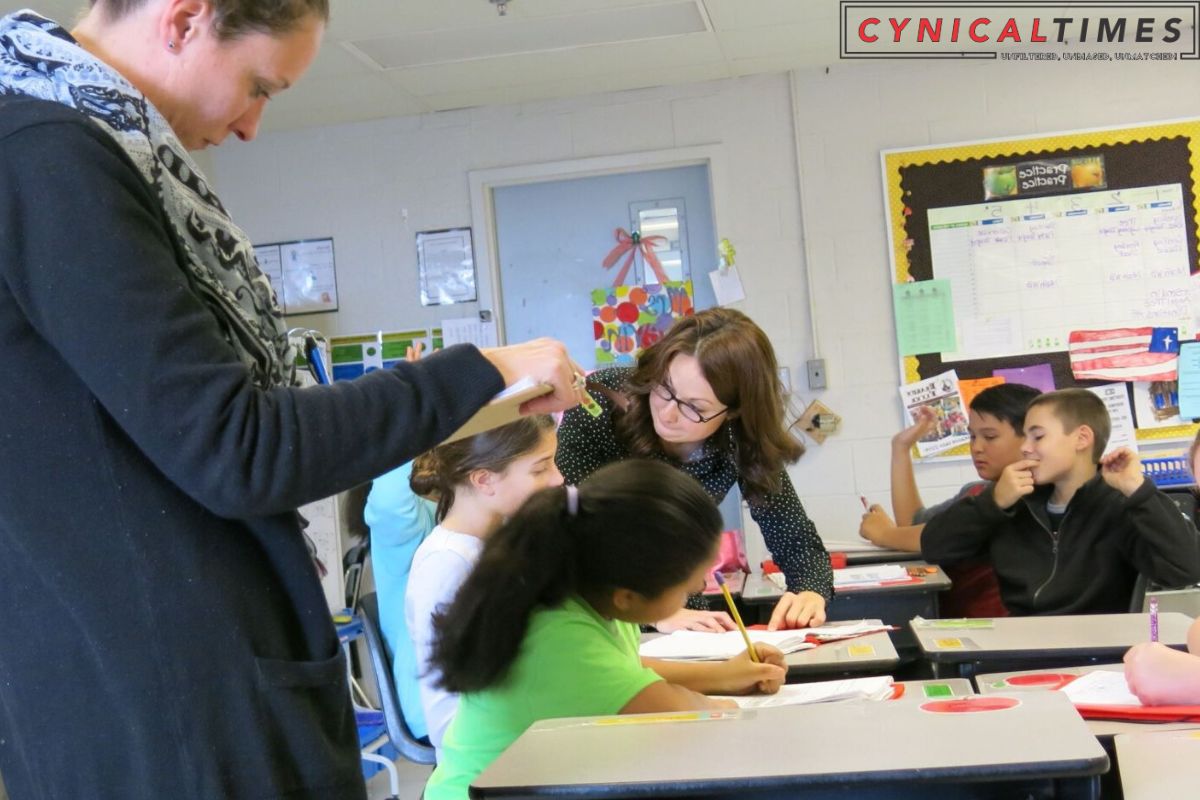Special Ed Teacher Shortage Emphasized : Diana Heldfond, CEO of Parallel Learning, discussed challenges in meeting special education needs on “Sunday Night in America” with Trey Gowdy. Having experienced learning problems, Heldfond now runs a business to meet the increasing demand for such services.
In “Sunday Night in America,” Heldfond discussed the diverse needs of 7.2 million special education kids. She discussed how children with dyslexia, dysgraphia, dyscalculia, ADHD, and autism have unique learning styles. She emphasized that special education students have different needs than neurotypical students in regular classes.
A problem in special education is the need for more trained teachers. Heldfond attributed the shortage to insufficient incentives, special education qualifications, high turnover rates, exacerbated by COVID-19 and the ongoing staffing problem.
Heldfond said the school environment was partly to blame for the lack of special education teachers. Gowdy said teachers struggle financially regardless of school type. He asked Heldfond to support those interested in special education work. She said money is less important than the providers’ impact on students’ lives. Special education providers are crucial for helping disadvantaged kids succeed in school and society post-graduation.


Also Read : New Mexico AG Takes Over Yazzie v : Martinez Case to Accelerate Education Reforms for Native Americans
Gowdy also inquired about the difficulty of assessing student growth in special education. He wondered if this hinders teacher evaluation. Heldond agreed, noting that each special education student has an individualized education plan (IEP). He also mentioned that testing standards are complex.
In IEPs, students are given goals to address their specific problems. The role of special education teachers is to assist children in achieving these goals. Heldfond said this goal is challenging due to the limited resources and time available.
The main issue is limited time and funds, and special education teachers often handle extensive paperwork and administrative tasks related to their services. Heldfond said special ed teachers have more work than other teachers, which is stressful.
Diana Heldfond’s “Sunday Night in America” interview highlighted schools’ challenges in meeting special education students’ needs. There’s a shortage of qualified providers, testing standards need to be clearer, and special education teachers are overwhelmed. Heldfond emphasized the importance of special education professionals in supporting students to succeed academically and personally.
Our Reader’s Queries
What are the effects of special education teacher shortage?
The scarcity of special education teachers has a profound impact on students with disabilities. This can result in bigger class sizes, limited access to specialized services, and heavier workloads for current teachers. Such a situation can be detrimental to the overall learning experience of these students.
What are the main reasons for teacher shortage?
To combat teacher shortages, it’s important to address several key factors. One of the most crucial is teacher pay – ensuring that educators are compensated fairly is essential to attracting and retaining top talent. Additionally, college loans can be a major barrier for those considering a career in teaching. Large class sizes can also make it difficult for teachers to provide individualized attention to each student. Disempowerment and external mandates can further exacerbate the problem, as can the emphasis on standardized testing. Finally, ensuring that teachers are well-prepared for their roles is essential to their success in the classroom.
Why are so many special education teachers leaving the profession?
According to a study conducted by the National Center for Education Statistics, special education teachers tend to leave their jobs due to four primary reasons. These include poor working conditions, which often involve a lack of resources and support, as well as dissatisfaction with the teaching profession. Additionally, family and personal reasons also play a significant role in their decision to leave.
How does teacher shortage affect education?
Insufficient and unqualified teachers, as well as unstable staff, pose a threat to students’ learning abilities and hinder the effectiveness of teachers. Additionally, high teacher turnover consumes valuable economic resources that could be better utilized elsewhere.

